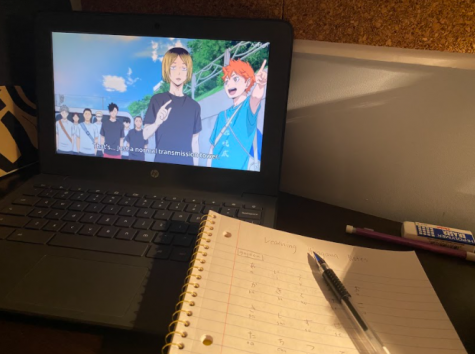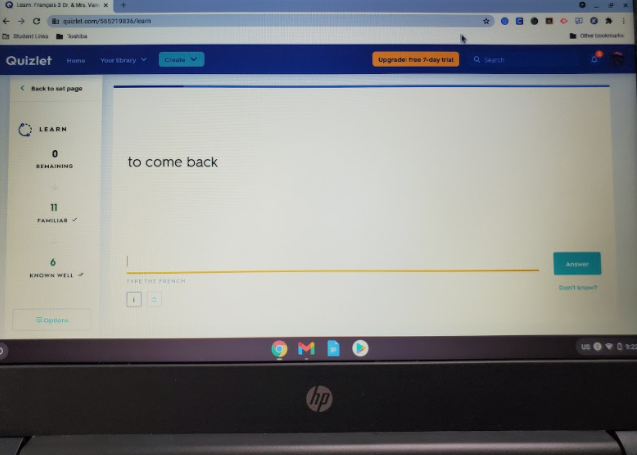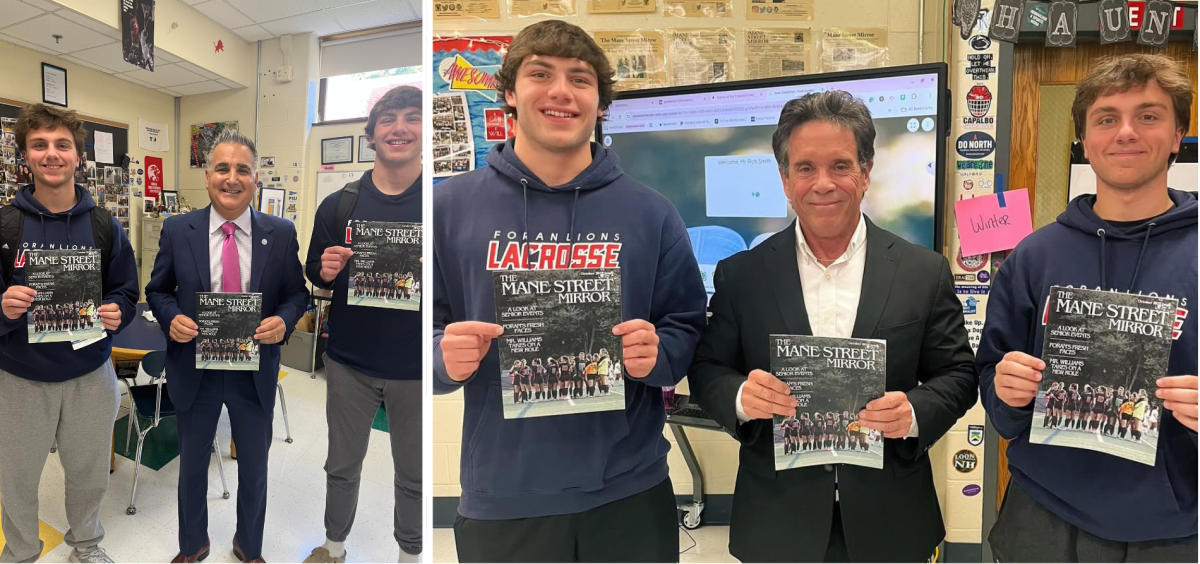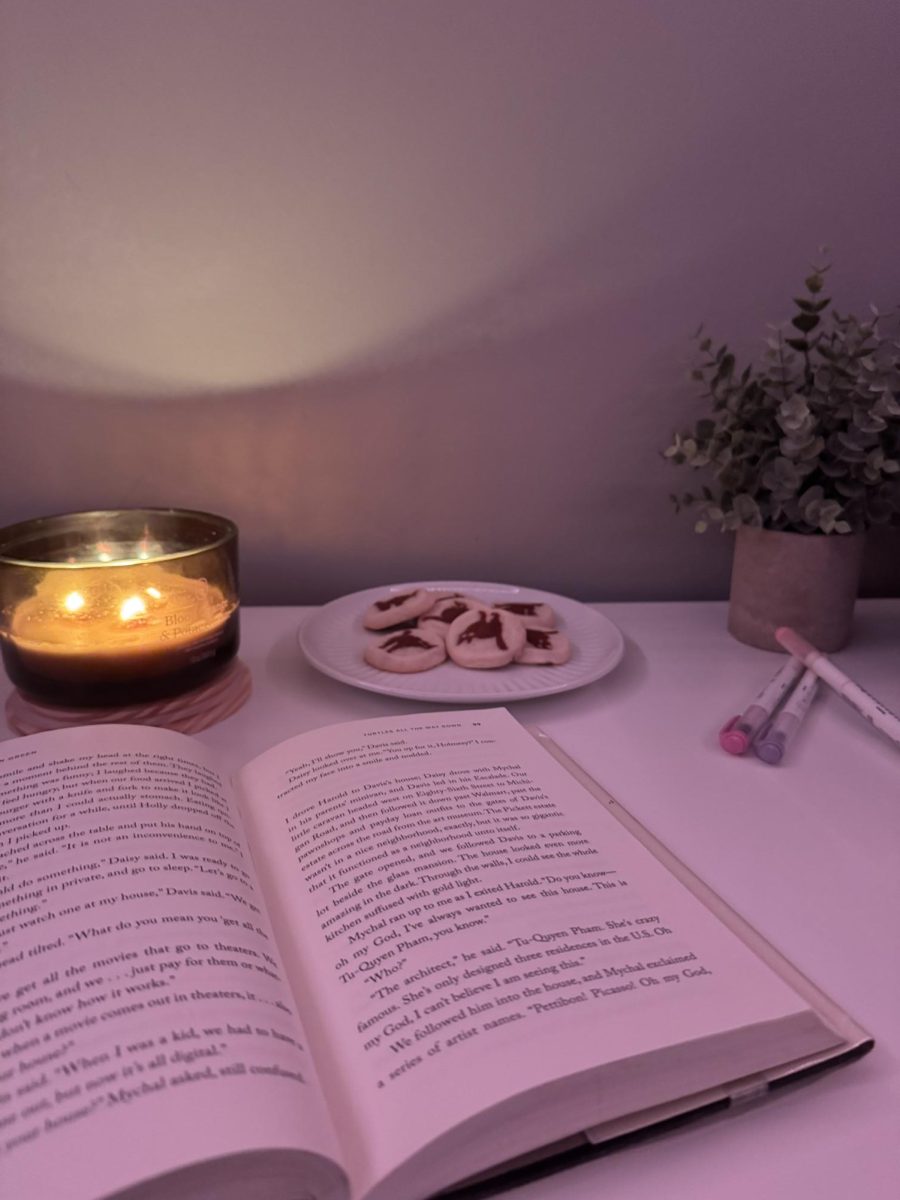How to Learn a New Language
Quizlet can be a useful resource to help learn vocabulary in any language. Photo Courtesy: Ivy Glidden, February 22, 2021.
March 8, 2021
Knowing another language is a rewarding skill, and the process of learning it can be an enriching experience. Not only does it open many career opportunities, but learning a new language can also open up one’s mind, allowing more interpersonal possibilities.
“[Learning another language] gives you more opportunities because you are able to communicate with more people,” says Mrs. Hanlin, one of Foran’s Spanish teachers.
Interact with native speakers.
Communicating or interacting with native speakers in any way possible is vitally important and super beneficial when it comes to learning a new language because it gives you practice. Oral practice or communication practice demands language learners to use different cognitive functions.
Psychological Science, a study by Elise W. M. Hopman and Maryellen C. MacDonald of the University of Wisconsin-Madison, shows that the speaking-practice group outperformed the comprehension-practice group.
They say, “Speaking requires individuals to integrate multiple cognitive functions at once, and the authors suggest that reliance on working memory during speaking could increase the “binding” between grammar, punctuation, and vocabulary, increasing connections among these linguistic elements as the speaker forms a sentence.”
When she was learning Spanish in college, Mrs. Anunziata, one of the Foran Spanish teachers, did not get the chance to study in a Spanish-speaking nation. However, she would try to communicate with as many Spanish speakers as she could find. Anunziata believes that oral practice is “invaluable” when it comes to learning a new language.
“Everyone I heard speaking Spanish, I would run up to them,” she said. Anunziata would try to find as many Spanish speakers as she could, and she would try to communicate with them using her acquired skills and knowledge.
Watch films or listen to music.
Music, films, and television shows are excellent sources that can help in learning a language.

Listening to music can help in memorization. It is a natural mnemonic device that has helped students for years. Remember learning to memorize the alphabet in preschool? Remember memorizing the process of how a bill passes to become law in social studies class?
Altissia, a site that empowers people to learn foreign languages, shares that scientists have shown that music holds several beneficiaries in learning a new language. Mrs. Anunziata would agree, as she says, “it is one of the best ways you can practice pronunciation.”
Aside from listening to music, watching television dramas or films is also a great tool in learning a new language.
Nico Esposito, a senior at Foran learning Latin, says, “The hardest for me has been the grammar, as it is much different than how we say things in English.” To help himself improve in the language, Esposito has been trying not to look at things in relation to English.
Movies and shows can help with grammar, diction, and syntax as it offers learners an example of how to speak more naturally. Furthermore, watching TV and films can help language learners understand the culture that their aspired language originated from.
Don’t focus on perfection.
People always say practice makes perfect, but perfection isn’t always the goal in learning a language. It is hard to become completely fluent, especially when someone starts learning later in life.
Foran French teacher Mrs. Kosenski says, “Perfection is the enemy of progress when learning new skills and many students are reluctant to use their burgeoning skills, afraid of not sounding good, being understood, or making mistakes.”
Kosenski believes reaching towards smaller goals is a much more effective strategy than attempting to become fluent. People need to learn to accept discomfort in not achieving everything at once.
Aiden Dowen is a senior in French that also has experience learning other languages like German. He started learning French at a young age and believes he is advanced in the language. However, he says he still has “quite a bit of self-doubt” regarding his ability to speak fluently.
While the opportunity of learning a language at school or growing up is not always available to everyone, people of all ages can pick up the skill with enough practice.









